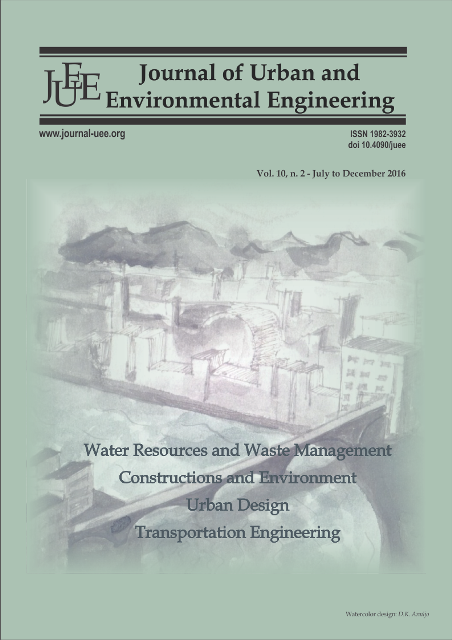EVALUATION OF SCENARIOS OF AIR POLLUTANTS EMISSIONS BY THE AIRPORT EXPANSION AND ASSOCIATED INFRASTRUCTURE - CASE STUDY OF THE EXTENSION OF VIRACOPOS AIRPORT AT CAMPINAS, SÃO PAULO, BRAZIL
DOI:
https://doi.org/10.4090/juee.2016.v10n2.186-193Keywords:
Viracopos International Airport, air pollutants emission, GHGs, aircraft emissions, vehicle emissions, AIMSUNAbstract
The development of the airport segment faces environmental externalities especially related to the increase in emissions of Greenhouse Gases (GHGs) from combustion of fossil fuels by the aircraft engine, by the machinery for the maintenance of the planes and also by the vehicles used for passengers connections (private cars, taxicabs or public transportation system). In this scope, the current work presents the case study of the expansion of the Viracopos International Airport at Campinas – São Paulo, Brazil. To evaluate that, the methodology of the Intergovernmental Panel on Climate Change (IPCC) was implemented to estimate the emissions of GHGs by aircraft for the years 2008 (before expansion), 2012 (current picture) and 2016 (future scenario) observing the changes in demand for passengers and cargo transportation. To evaluate the emissions from the vehicles it was used the AIMSUN microsimulation software to estimate emissions in the years 2012 and to simulate sensitivity scenarios for the year 2016. It was found that the inventory of CO2 emissions for both types of transports considered for Viracopos airport showed similar orders of magnitude, what can be inferred about the equivalent contribution of these two modes on emissions of GHGs for the study area. These results may serve as a basis for establishing emission management plans of air pollutants by the competent organizations and to propose more targeted and effective measures to reduce the GHG emissions by these sources.Downloads
Download data is not yet available.
Downloads
Published
2017-04-28
Issue
Section
Articles




